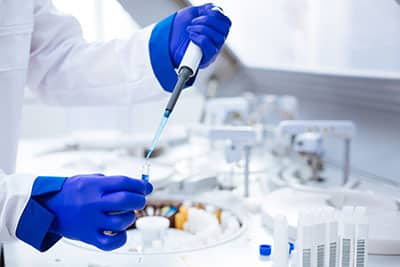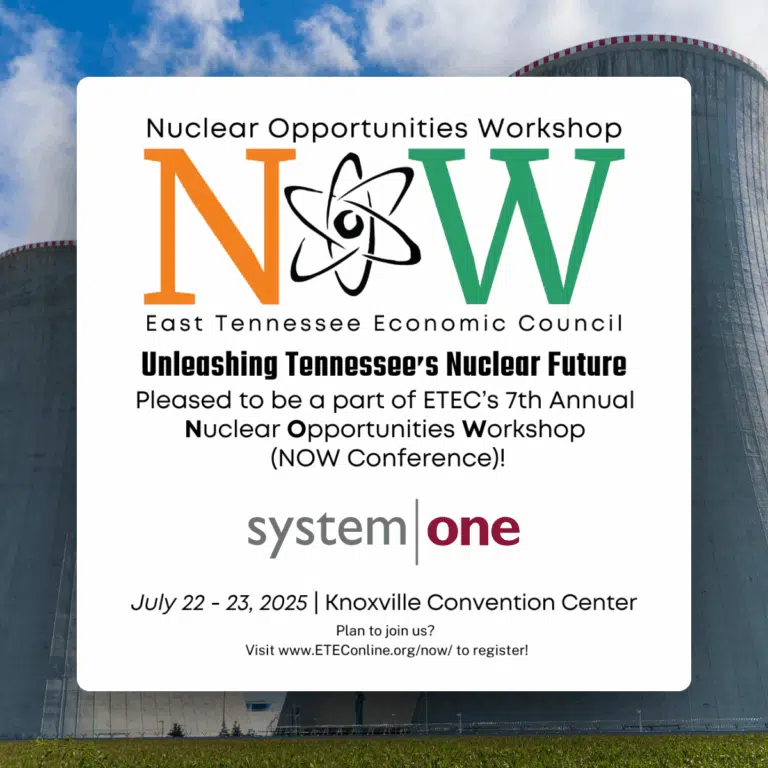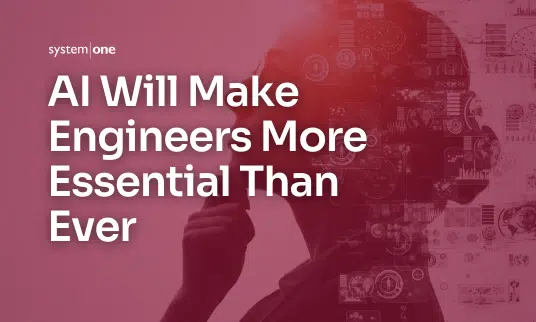Joulé’s Impact in the COVID-19 Pandemic

COVID-19 Vaccine Development
If you haven’t met Joulé yet, let us introduce you: Joulé is a life sciences workforce solutions and equipment services firm. They match highly-qualified talent to scientific, clinical, and healthcare companies nationally. From research scientists and manufacturing personnel to calibration engineers and metrologists, Joulé is intimately involved in all life sciences sectors and can solve complex, critical business challenges of any size and scope.
As you can imagine, Joulé is perfectly positioned to make a lasting impact during this pandemic. We wanted to know what assistance they’ve been able to provide so far in the formulation of a vaccine, and were shocked at the sheer scale of their results.
Watch the interview below to meet the team behind the hard work. Can’t watch the video? Scroll below for a transcript.
0:33 – System One: Your workday, from normal to pandemic, must be quite different. What’s an average day for you now?
0:45 – Shameeka Randolph, Joulé: Once I get up in the morning, I set my laptop up in the dining room, which has become my work area. When I’m done, I pack up and go to the living room. I stay in the house all day, living the stay-at-home life, as I call it.
1:16 – Michael Sousa, Joulé: I haven’t been traveling as much. One of the things I like to do is be a part of the process and meet the teams, talk about where they’re going, how they’re getting there, and what we as an organization – or I, as a leader – can do to help them get there, so I really do miss the face-to-face. Not traveling as much has been awesome – I don’t miss that – but it’s part of the job. You just don’t realize the wear and tear of it until you’re not doing it anymore. But we’re really using a lot of technology, whether it’s Zoom, Skype, or Teams, and we’ve been able to get our salespeople to sell a little differently, so we’re interacting a lot. We have weekly sales calls and one-on-ones virtually. A lot has changed, but to me it’s just – you have to answer the bell. You stand tall and you just keep marching, and you try to keep the team together, from a leadership standpoint. There are a lot of different things, but you’re able to shift when you really believe in the principles of what the organization’s doing, from System One to Joulé. We believe in service with every fiber of our being. That’s what we stand for. But we also have our goals, internally, that we need to hit. When a pandemic comes, nobody’s ready for it. You just have to read the landscape and try to position the organization in the best way possible. We need to be very supportive, understanding, and empathetic to what our team members are going through, and in turn, I think the waterfall effect is that they treat people they interact with in the same way. We’re reaching out to potential clients and past clients, and it’s more of a, “What can we do to help you? We’d like to give you information about how other companies are handling this right now, what their protocols are.” We can share some of that information, and we’ve positioned ourselves as a resource just to help. If we do it for the authentic reason, which is to really help, good things happen. That’s what we believe.
4:25 – For those unfamiliar with Joulé, can you give us a 30,000 foot overview of what you do?
4:32 – Michael Sousa: We are a clinical and life sciences workforce solutions organizations. We live in the clinical and scientific recruiting space. I’d say 85% of our business is what we call pure staff augmentation, which is direct hire, contract, and contract-to-hire. We have four pillars, and that is our ‘lead’ pillar – but the other three are very strong: our consulting group, our equipment service group, and then our managed services group that we rely on. We have four pillars, and we live in those lanes. Something that makes us successful, we think, is that we really focus on what we’re doing at that time, and we’re aware of the bigger picture of clinical and life sciences organizations.
5:36 – Very cool. I’m actually curious about equipment services because I’ve done so many skill marketing emails for them, how big of a part of the business that is.
5:47 – Michael Sousa: They are a key part of the business. Most of their business is in the Philadelphia and New Jersey areas, and they do testing and validation of basically any lab equipment. At certain clients, we have technicians on site. It’s really a great piece of our business. The way we try to position ourselves is to be able to go into any sort of pharmaceutical or development Company and say, “Listen, we can service you in these four key ways.” That really separates us from the competition: the ability to go in there and be embedded. But yeah, the key thing is that each pillar is laser focused on the delivery of whatever that initiative is.
6:46 – Part of working with Joulé - why do you think the culture is so key to what you guys are doing and how you’re performing?
6:55 – Shameeka Randolph: My branch, in Edison, we’re a tight-knit group. Our communication is fantastic. Even though we’re far away, sometimes we call each other just to say hi, and we text each other. Even though we’re not in the office, when we do our morning meeting, it feels like we’re all there together. I think that’s what really helped our culture – we’re a really great team and I love those guys. I honestly can’t wait to see them. Since we’re such a tight-knit group, we’re able to help each other when it’s needed. If I can’t figure out a search, I can definitely rely on my team members to help me out.
7:49 – Meghan Ciminello, Joulé: What I would boast about for our culture is the communication. It was very tight before when we were in the office and we’d just shout over the cubicles, but since we can’t do that now, we have multiple phone calls per day, we’re communicating through video in the morning and sometimes even in the afternoon. I think as far as culture for us, the number one has been over-communication between us internally. That way, we have as much information as possible to share with our clients. We’re also encouraging them to over-communicate since everything is changing so quickly – this helps us get information back internally and then to our candidates as well.
8:40 – When the pandemic first hit – so hard, in New York and New Jersey – can you share what your experience personally – outside of work – affected you?
8:50 – Jennifer Novajosky, Joulé: Amongst a lot of other people too, it was pretty scary because all of the sudden, the world came to a pause. Schools were closing, we were working remote – all these things were happening at once. The biggest thing for me was the fear of not knowing what’s going to happen tomorrow: is this something short-term that will just blow over in a couple weeks, or is this something long-term that we’re going to be facing? Personally and professionally, once I got over the shock of what was happening, then it was going into the mode of, “Ok, what do we need to do next?” For work, it was checking with our employees: are they ok? Are they impacted at all? Can we provide any support? And that was on the client side, too. We just got to work and had the mindset of, “Let’s just do one thing at a time, and as things come up, we’ll navigate through them.”
10:02 – In regard to your specific business unit, were there any new policies that were implemented? Anything to protect employees, clients, and contractors?
10:13 – Jennifer Novajosky: Our corporate support team, in particular Human Resources, did a phenomenal job of quickly putting a plan in place so that as we were navigating through COVID-related situations, we had a foundation we could quickly go to and resolve.
10:33 – Sally Smith, Joulé: We had a lot of clients that very rapidly had to develop protocols for if a contractor called in sick. Before, it was something that would simply be, “Alright, this person won’t be coming in today,” now there had to be investigation into where that person was on site, who they were in contact with, how long they were in contact with them, what kind of PPE was worn while they were in contact and exposed to other employees, etc. So with several of our clients, we felt like we just kept peeling back layers and layers of the onion just to make sure we got to the bottom of every single potential COVID-19 exposure risk and make sure that every facet was deemed safe and ok for people to return to work.
11:22 – I heard through the grapevine that Joulé has sourced a good 150 scientists and manufacturing personnel to support vaccine development over the last few months. Can you tell us a little bit about that?
11:35 – Sally Smith: One of our clients is developing a proprietary technology and also harnessing platforms from top companies in life sciences to quickly develop a safe and effective vaccine for COVID-19.
11:46 – Jennifer Novajosky: I would say that for this branch in particular, a big focus on what we’ve been working on, COVID-related, has been manufacturing roles. For example, a client that’s making a product to help treat COVID-19, or companies that are making diagnostic test kits to get these kits out the door to testing centers. We’ve seen a big influx of those jobs come through our branch – we’ve worked these types of jobs before, but the volume of the roles coming in has helped us look at, “What’s our process, and what can we do differently to make sure we’re staying ahead of this to support our clients and employees as best as we can?”
12:31 – Can you tell us a little bit about what kinds of scientists you’re looking for? Is it for clinical trials, research, QA, or the actual development?
12:41 – Sally Smith: They’re doing a myriad of things. We have scientists who are developing and validating processes to rapidly scale manufacturing and distribution of vaccines. We’re also deeply entrenched within a lot of their quality organizations in both QA and QC. We’re ensuring the work that’s being done is reliable, replicable, and compliant with FDA guidelines. Also, we’re hands-on in labs, actually growing the cell lines needed to manufacture the vaccine, so we’re working in their upstream processing groups to help grow the cells, and their downstream processing groups helping to purify and refine to get exactly the therapeutics that they need.
13:27 – Shameeka Randolph: Primarily, I do a lot of manufacturing. We work with a company that makes cough syrup for people with the disease, so I’ve been sourcing those types of operators, technicians, things like that.
13:42 – What background are you looking for when you’re hiring for them?
13:45 – Shameeka Randolph: This specific company, we’re looking for people who have compounding experience, tablet pressing, blending, granulation of products, and actually manufacturing those types of products.
14:02 – In terms of education for the manufacturing side of it, what are you looking for? High school?
14:11 – Shameeka Randolph: Just a high school diploma. They would love some exposure, but a high school diploma mainly.
14:16 – Meghan Ciminello: I’ve actually been a little more on the clinical side. I’ve seen an uptick recently – which I’m excited about – in clinical trials that are either a treatment or a potential vaccine for COVID-19. Even though I’m not the one administering the vaccine, I’m not on site, I still get to play a small role in trying to get our country back to normal by making some progress in the fight against COVID-19. We’ve definitely seen an increase in clinical trials. We’ve also seen a lot of process development roles, because we’re seeing a lot of clients pivot. If they were doing something like oncology or infectious disease, they’re pivoting towards how they can help in the fight to find a treatment or vaccine. We’ve seen some diagnostic companies move from their normal offering of testing to trying to develop a COVID-19 test. We’ve seen medical device companies try to figure out what they can do in the efforts. It’s been really interesting to see our clients get creative for how they can pivot to be helpful during this time.
15:38 – When you’re looking for candidates to fill these roles, what kinds of backgrounds are you looking for?
15:41 – Sally Smith: Of course we’re looking for scientists and engineers that have really specific operational and tactical skills. Examples of that would be process validation, protein verification, and mammalian cell culture. But we’re also looking for people who have strategic and critical thinking skills that will allow them to thrive in an environment where there’s a lot of rapidly-changing things and conflicting priorities.
16:11 – And in terms of education, I’m assuming these are PhD and Master’s-type roles?
16:16 – Sally Smith: It really varies. Some candidates are recent graduates with biology degrees, other people have PhDs in biochemistry or molecular biology. We’re seeing the whole spectrum of academic backgrounds and experience levels.
16:34 – Meghan Ciminello: As far as backgrounds for candidates, we are really interested in people that have infectious disease experience, especially in clinical trials. A strong understanding of PPE, and comfortability – that is important too. We’re really looking for people that have clinical trial experience, that truly understand the pace of clinical trials and the need for adaptability and flexibility. As much as we want them to go quickly, they have to be detail-oriented. Definitely looking for the skillset and technical piece, but also it’s been really important to screen people that they, from a professional standpoint, can be effective in that role. It’s definitely a unique combination: you can’t be so detail-focused that you get caught up in the little things, but you need to be able to change as the plan changes, since science changes when we find new research.
17:49 – In terms of other ways Joulé has been able to help – connecting the right people together, providing PPE, donating, sharing research, etc. – has there been anything else, outside of direct staffing, that you’ve been able to do?
18:03 – Jennifer Novajosky: One of the things you mentioned was PPE. Our clients are really great about making sure that anybody coming onboard has the appropriate PPE to do the job. But in cases where perhaps there was a shortage or anything additional was needed, the safety of our employees is our top priority, so we made sure that if anyone needed something, we were there to provide that support to them.
18:29 – Sally Smith: One of the neat things about our organization is that we have these decades-long relationships with almost every player currently active in the COVID-19 space. A lot of these companies and functional groups historically have not interfaced with each other. For example, why would a biodefense contractor, a clinical packaging company, and a medical device startup ever end up on a conference call together? It’s been neat because we’ve been able to provide these vital introductions that have bolstered collaboration and sped up timelines in different aspects of COVID-19 vaccine development.
19:09 – Is there anything that you’d like to share? We just talked about all those scientists, but what about stuff like turnover?
19:19 – Sally Smith: We, essentially, provide contingent labor for a lot of our projects. That is a skillset-type of employment that comes with a certain amount of expected turnover. I have been amazed at how low turnover has been through the projects we’ve been working on. I think everybody kind of knows the importance of their core mission, so turnover has been almost nonexistent, which is great. I’ve loved that. Another thing I wanted to share is this: I’ve primarily just been talking about our one client who has been doing vaccine development, but our clients that are fighting COVID-19 fall into three core buckets. The first bucket is biotech companies that are developing and scaling up a diverse range of vaccine candidates. The second bucket is medical device companies that are retrofitting and aligning their blood filtration products to support antibody therapies. The third bucket is clinical packaging companies that are manufacturing all kinds of PPE like gloves, masks, gowns – any kind of disposable use in a healthcare setting, to ensure that our frontline workers are safe. It’s been neat!
21:26 – 2020, overall… Awful year, awful year… But what’s one good thing that has come out of this pandemic for you?
21:35 – Michael Sousa: That’s a great question. It has been a really tough year for the world, right? You’ve seen all the memes. 2020, just pick any picture of a disaster. There have been a lot of positives, actually. From a business standpoint – and we talk about this quite frequently – we feel very humbled and fortunate to be a part of the clinical and life sciences world, because there is a lot of business here. Our unemployment is not at 10-12-15%, it’s closer to 2-3%, so there is a demand, and we are fortunate that we partnered with clients that are rapidly trying to get a vaccine to the market. We’re very, very busy, and if we look at one specific good thing – and this is something we talk about a lot here – it’s that we know our place in the chain of delivery and we humbly accept that. But we are in a spot where we can impact lives and the world, and the fact that we can work with organizations that are working on vaccines, among other things – whether it’s something to prolong someone’s life that has been afflicted with a disease or terminal cancer, working on life-saving drugs – we’re really honored to be in that segment and it’s something we don’t take lightly. As a leader, I learned that our team can work remotely phenomenally. I was not a believer in that, but I learned that it can be done to a high level. Personally, I’m able to spend a lot more time with my family. We talk about that at Joulé and System One, family is the most important thing. I feel a little guilty because there were a lot of great things to come out of this and I feel sympathetic to the world and the struggles that so many people are dealing with.
24:08 – Jennifer Novajosky: There have actually been quite a few positive things. For me, it has really forced me to just take a step back, professionally and personally, and look at how I operate. It has really made me open my eyes to the importance of making sure to work intentionally and live my personal life intentionally, and make sure that everything we’re doing has meaning and impact to myself and the others we’re working towards helping. Another big thing that’s come out of this has been the awareness of support that I have around me. Everybody has really leaned into each other and I think this has created a bigger sense of community.
25:23 – Meghan Ciminello: The best thing about 2020 is that I was able to get married, which is really exciting. We had plan after plan after plan because the pandemic evolved over time, but we did eventually figure out how to have parents, siblings, and grandparents grouped together by household, six feet apart, and it was outside. I’m really thankful we were able to make it work. I think as an overarching perspective of what I came out of 2020 with, you just figure it out. You just get it done. Even with new regulations and requirements.
Want to learn more about Joulé? Visit them here.
About System One
System One delivers specialized workforce solutions and integrated services. We help clients get work done more efficiently and economically, without compromising quality. For more than 40 years, we’ve built our reputation on exceptional talent, flexible delivery, and full accountability. System One’s national network spans energy, engineering, IT, commercial, scientific & clinical, legal, marketing, and beyond. System One is based in Pittsburgh, PA.
Looking for business solutions?
Explore System One

